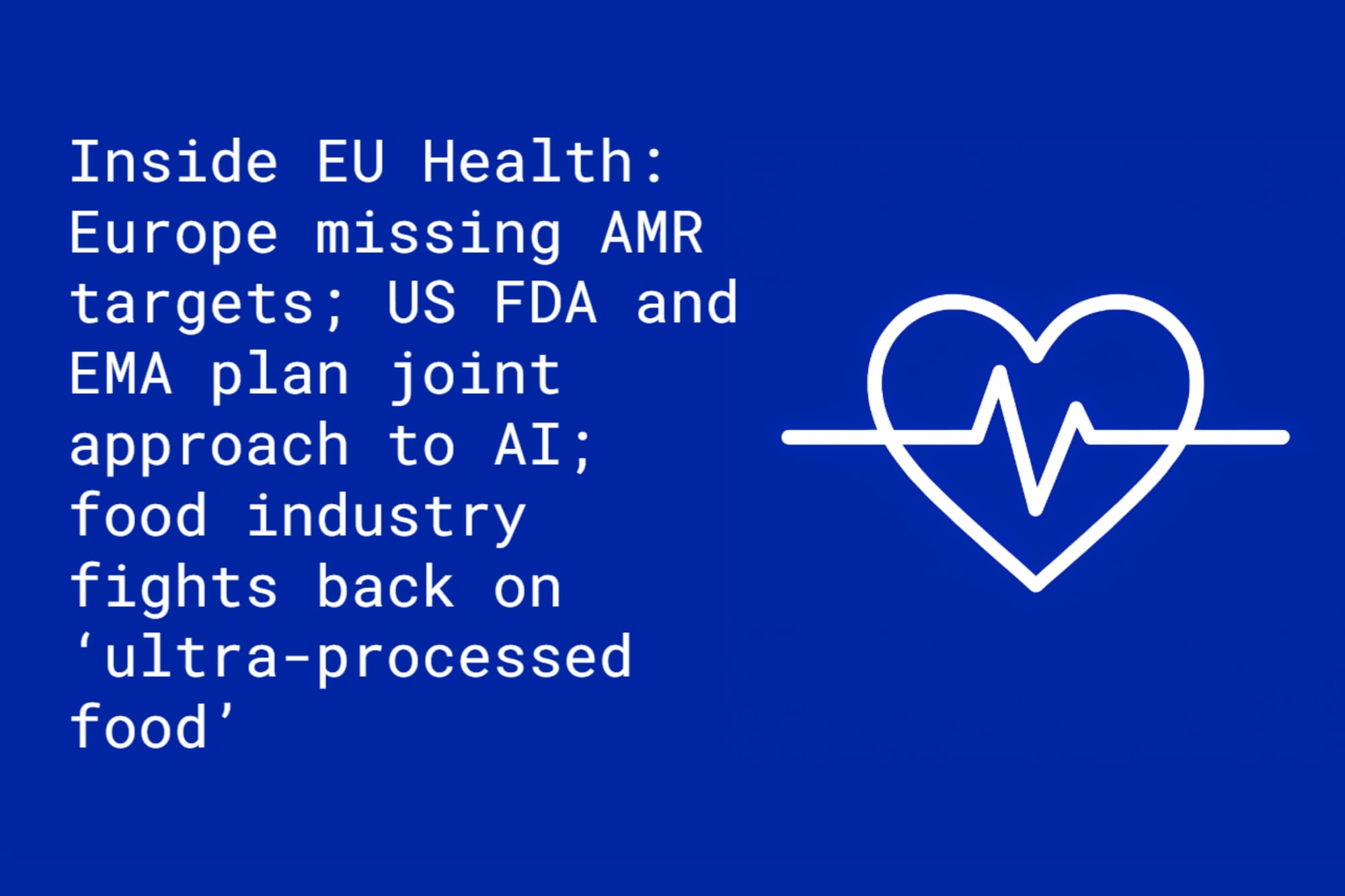Inside EU Health: Europe not on track to meet AMR targets; US FDA and EMA will present a joint approach to AI; food industry fights back on ‘ultra-processed food’
Europe not on track to meet AMR targets; US FDA and EMA will present a joint approach to AI; food industry fights back on ‘ultra-processed food’

Europe not on track to meet four of five AMR targets
New data from the ECDC shows the threat of antimicrobial resistance, known as ‘the silent killer’, continues to rise across the EU.
The EU/EEA aren’t just missing targets; some are going in the wrong direction. The estimated incidence of bloodstream infections caused by carbapenem-resistant K. pneumoniae has increased by more than 60%, despite a target of 5% reduction by 2030. Likewise, infections caused by third-generation cephalosporin-resistant E. coli have risen by more than 5%, despite a target of 10% reduction.
Antibiotic consumption also increased in 2024, despite a 20% reduction target. Meanwhile, the proportion of first-line antibiotics used has remained stagnant at 60%, while dependence on last-resort antibiotics has grown.
The one bright spot is the reduction in MRSA bloodstream infections.

US FDA and EMA will present a joint approach to AI
Asked about the role AI should play in clinical trials, the Executive Director of the European Medicines Agency (EMA), Emer Cooke, said, “That is the million-dollar question.” Cooke said that the Clinical Trial Regulation was written when AI was not at the forefront of people’s minds, and people are now looking at how it can be used to facilitate and streamline the process.
She said that Europe needs to look at the opportunities that AI presents, but to do so in a way that is safe and ethical. EMA is already using AI to access information from scientific advice letters, and is developing a “huge roadmap” on AI, which she says will enable some of the changes in the Biotech Act, due for publication on 16 December.
Speaking about co-operation with the US Food and Drug Administration (FDA), she added that the two regulators work closely together and that EMA and the FDA would be publishing a joint paper on AI principles in the near future.
Food industry fights back on ‘ultra-processed food’
Food and Drink Europe, which represents some of the largest manufacturers, is fighting back on ‘ultraprocessed foods’ (UPF), saying that the science behind the term is “far from settled”. It describes the campaign against UPF as sensationalism rather than science.
Instead, it says the best way to tackle obesity and non-communicable diseases is to focus on the nutritional content of food, in conjunction with lifestyle. It says that food and drink makers are already playing their part by reformulating products, reducing salt, fat and sugar.
Leaked drafts of the EU cardiovascular health plan suggest that the Commission is planning to introduce levies on foods containing high levels of fat, sugar and salt. The tax rate and the details of how products will be defined have not yet been laid out.
Health Commissioner Oliver Várhelyi may be taking inspiration from his home country of Hungary, which passed legislation in 2011 imposing taxes based on the levels of salt and sugar in food and drinks. A 2015 study concluded that the tax had the desired effect of improving diets among lower-income households, while better-off households tended to absorb the extra costs.

